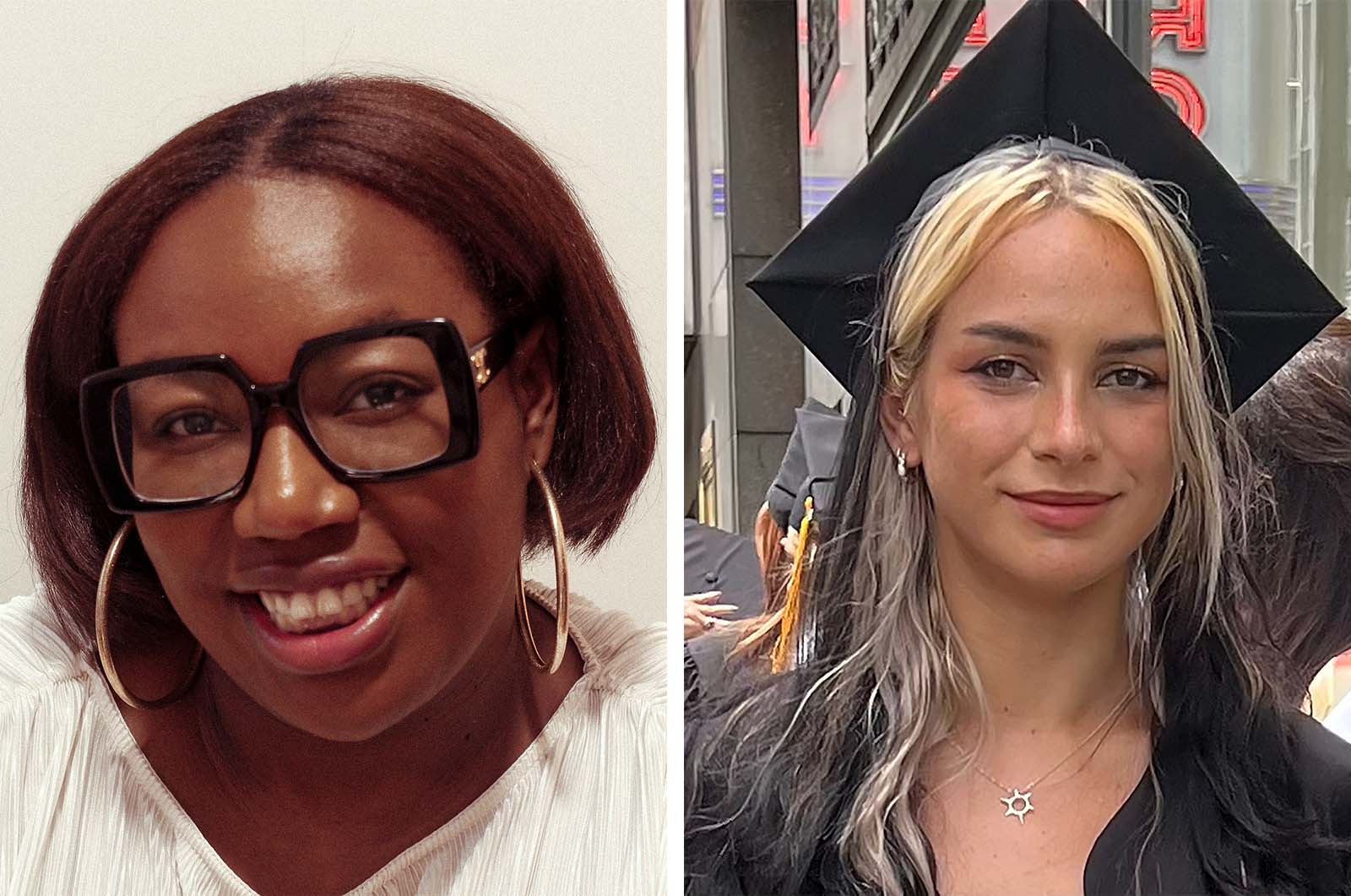Tommesha Holt, MFA Photography ’23, and Lauren Walker, BFA Communications Design ’21, have received Fulbright U.S. Student Program awards for the 2024–2025 academic year from the U.S. Department of State and the Fulbright Foreign Scholarship Board. Since 1946, the Fulbright Program has provided over 400,000 talented and accomplished students, scholars, teachers, artists, and professionals of all backgrounds with the opportunity to study, teach, and conduct research abroad. Both Holt and Walker received Open Study/Research Awards, for which applicants “design their own projects and will typically work with advisers at foreign universities or other institutes of higher education.”
Holt will conduct research in Rio De Janeiro, Brazil, exploring identity, heritage, and artistic expression through the lens of the ocean. For her project, “Threaded Traces,” she will look at how Afro-Brazilian and African Diaspora communities relate to the ocean. By engaging directly with communities in Brazil, Holt aims to combine academic rigor, creative documentation, and personal inquiry.
“As a Black woman/African American with a deep love for the ocean, I have questioned the disconnect between my affinity for the sea and the anxiety experienced by elders and extended family members around large bodies of water,” she wrote in her project description. “I am intrigued by the possibility of shared stereotypes, traumas, or contradictions as it relates to Afro-Brazilians’ relationship to the ocean that may be expressed through art or conversation.”
Walker is pursuing a master’s degree in media art and design (MAD) at the Bauhaus-Universität Weimar, specializing in interface design and media environments. There, she plans to conduct research for her project, “Revealing Human Connections: A Spotlight on WWII Bunker Reclamation,” which considers how German air-raid bunkers have been transformed and repurposed since WWII, and the diverse roles they play as spatial interfaces within communities. From the university, she will be able to explore the 103 converted bunkers located in German cities. The project will culminate in a presentation during her master’s colloquium.
“I have opted to specialize in interface design because it offers the ideal framework for studying the ways the bunkers, as a physically built space, facilitate human interaction and community engagement,” Walker wrote in her project description. “I also plan to incorporate the principles of media events into my research of converted bunkers, which assert that events acquire justification and meaning through media.”
In 2018, the Center for Career and Professional Development (CCPD) began advising on Fulbright applications, and Pratt Institute has prioritized involving students in the program. Recently, Pratt received recognition as a Fulbright Top-Producing Institution for US Scholars and Students, ranking in the top ten of four-year special-focus institutions for the fifth consecutive year.
“The CCPD works closely with Pratt’s faculty and library system to advise students and alumni,” said Deborah Yanagisawa, Pratt’s Fulbright advisor and associate director of career development and engagement. The 2025–2026 award cycle has begun and the national deadline is October 8 at 5 PM. Those interested can apply for grants and receive assistance from Melanie Barksdale and Yanagisawa at the CCPD all through the summer and fall semesters.
Since Pratt began applying to the Fulbright Program in 1949, it has averaged one Fulbright awardee per year, receiving in total 57 grants and research scholarships for study in countries including Austria, Azerbaijan, Brazil, Belgium, Belize, Croatia, Denmark, France, Germany, Iceland, India, Ireland, Italy, Jordan, Kazakhstan, Macedonia, Mauritius, the Netherlands, Nicaragua, Norway, Poland, South Korea, Switzerland, Thailand, Turkey, Ukraine, the United Kingdom, and Vietnam.
Previous Fulbright recipients from Pratt include Diana Kokoszka, MArch ’15, for research in Mauritania in 2018; Ali Shrago-Spechler, BFA Fine Arts (Painting) ’11, for research in Germany in 2020–21; T. Craig Sinclair, MArch ’16, for research in Norway in 2021–22; and Olivia Noss, BFA Photography ’22, for research in Germany in 2023–24.
